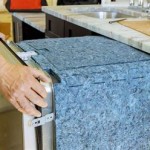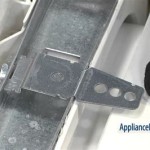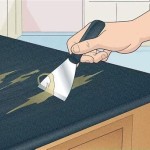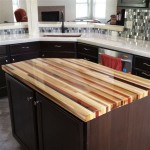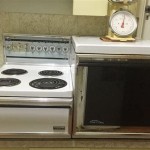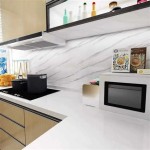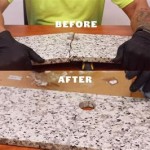```html
What To Know About Quartz Countertops
Quartz countertops have surged in popularity among homeowners and designers due to their blend of durability, aesthetics, and relatively low maintenance requirements. Understanding the composition, properties, and considerations surrounding quartz countertops is essential when planning a kitchen or bathroom renovation project. This article provides a comprehensive overview of quartz countertops, addressing key aspects that potential buyers should be aware of before making a purchase.
Unlike natural stone countertops such as granite or marble, quartz countertops are engineered stone products. This means they are manufactured by combining approximately 90-95% ground natural quartz with 5-10% resins, polymers, and pigments. This combination results in a non-porous surface that is highly resistant to stains, scratches, and bacteria. The manufacturing process also allows for a broader range of colors and patterns compared to naturally occurring stone.
The proportion of quartz to binding agents can vary slightly among different manufacturers, but the general principle remains the same: to create a durable and aesthetically pleasing surface. The resins and polymers act as binders, holding the quartz particles together and providing flexibility. The pigments are added to achieve the desired color and pattern, allowing for a wide variety of options from solid colors to patterns that mimic natural stone.
Key Point 1: Composition and Manufacturing
The engineered nature of quartz countertops significantly impacts their properties and performance. Understanding the manufacturing process sheds light on their advantages and limitations. The key components are ground quartz, resins, polymers, and pigments. Quartz provides the strength and durability, while the resins and polymers bind the material together and add flexibility. Pigments give the countertop its color and pattern.
The manufacturing process typically involves mixing the raw materials in specific proportions. This mixture is then poured into molds and subjected to high pressure and heat, a process known as vibro-compaction. This process removes air pockets and creates a dense, solid slab. The slabs are then calibrated to the desired thickness and polished to achieve a smooth, even surface. Some manufacturers also add antimicrobial agents to the mixture to further enhance the hygienic properties of the countertop.
The ability to control the composition and manufacturing process allows for consistent quality and predictable performance. Unlike natural stone, which can have variations in color and veining within the same slab, quartz countertops offer a more uniform appearance. This consistency can be a significant advantage for homeowners who prefer a clean, modern aesthetic.
Moreover, the manufacturing process allows for the incorporation of recycled materials. Some manufacturers use recycled glass or other materials in their quartz countertops, reducing the environmental impact of the product. This can be an important consideration for environmentally conscious consumers.
Key Point 2: Advantages and Disadvantages of Quartz Countertops
Quartz countertops offer a multitude of advantages that contribute to their popularity. However, like any material, they also have certain disadvantages that should be considered before making a purchase.
One of the primary advantages of quartz countertops is their durability. The high quartz content makes them resistant to scratches, stains, and chips. They are also non-porous, which means they do not absorb liquids or harbor bacteria. This makes them a hygienic choice for kitchens and bathrooms. The non-porous nature also means that quartz countertops do not require sealing, unlike natural stone options. This significantly reduces maintenance requirements.
Another significant advantage is the wide range of colors and patterns available. The engineered nature of quartz allows for greater control over the aesthetic appearance. Homeowners can choose from solid colors, patterns that mimic natural stone, and even custom designs. This versatility makes quartz countertops suitable for a variety of design styles, from traditional to contemporary.
However, quartz countertops also have some disadvantages. While they are heat resistant, they are not heatproof. Prolonged exposure to high heat, such as from a hot pan placed directly on the countertop, can cause damage. It is always recommended to use hot pads or trivets to protect the surface. Additionally, while quartz is UV resistant to some degree, prolonged exposure to direct sunlight can cause fading or discoloration over time. Therefore, quartz countertops are generally not recommended for outdoor use.
Another potential disadvantage is the cost. Quartz countertops are generally more expensive than laminate or tile countertops, but they are often comparable in price to natural stone options like granite. The cost can vary depending on the brand, color, pattern, and thickness of the slab. Installation costs should also be factored into the overall budget.
Finally, while quartz is very durable, it is not indestructible. Sharp objects can still scratch the surface, especially if excessive force is applied. Care should be taken to avoid dropping heavy objects onto the countertop, as this can cause chipping or cracking.
Key Point 3: Maintenance and Care of Quartz Countertops
Maintaining quartz countertops is relatively simple, contributing to their appeal for busy homeowners. Regular cleaning and preventative measures can help to preserve their beauty and durability for many years.
For everyday cleaning, a soft cloth and mild soap and water are sufficient. Simply wipe down the surface after each use to remove spills and crumbs. For tougher stains, a non-abrasive cleaner can be used. It is important to avoid using harsh chemicals, such as bleach or ammonia, as these can damage the surface. Avoid abrasive cleaners and scouring pads since they can dull the finish.
While quartz is stain resistant, it is still important to clean up spills promptly. Certain substances, such as wine, coffee, or juice, can potentially stain the surface if left to sit for an extended period. Blot up spills with a clean cloth as soon as they occur.
As mentioned earlier, quartz is not heatproof. Always use hot pads or trivets under hot pots and pans to prevent heat damage. Avoid placing hot appliances directly on the countertop. Similarly, avoid cutting directly on the quartz surface. Use a cutting board to protect the countertop from scratches.
Although quartz is UV resistant, prolonged exposure to direct sunlight can cause fading or discoloration. If the countertop is located in an area that receives direct sunlight, consider using window treatments to filter the light. Dust particles can also scratch the countertops, so it's a good practice to regularly clean with a soft cloth.
In general, quartz countertops are a low-maintenance option. However, following these simple guidelines can help to ensure that they remain in good condition for years to come. Minor chips or scratches can sometimes be repaired by a professional, but prevention is always the best approach.
Choosing a quartz countertop that aligns with one's needs, budget, and design preferences requires careful consideration of various factors. By understanding the composition, advantages, disadvantages, and maintenance requirements of quartz countertops, consumers can make informed decisions and enjoy a durable, beautiful, and easy-to-care-for surface in their homes.
The installation process for quartz countertops is best left to professionals. Proper installation is crucial to ensure the longevity and performance of the countertop. A qualified installer will have the necessary tools and expertise to properly measure, cut, and install the slabs. They will also ensure that the countertops are properly supported and sealed to prevent water damage. Improper installation can lead to cracks, uneven surfaces, and other problems.
When selecting a quartz countertop, it is important to consider the thickness of the slab. Thicker slabs are generally more durable and resistant to chipping. Common thicknesses range from 2 centimeters (3/4 inch) to 3 centimeters (1 1/4 inches). Thicker slabs may also require stronger cabinet support.
```
Quartz Countertops Know About The Pros Cons

The Ultimate Guide To Quartz Countertops Everything You Need Know Sunset Granite

Everything You Need To Know About Quartz Countertops

From Quartz To Wood A Look At The Best Kitchen Countertop Materials Boss Design Center

All About Quartz Countertops This Old House

Everything You Need To Know Before Choosing White Quartz Countertops Amanda Katherine Interiors

How Check Quartz Countertop Quality Before You

Everything You Need To Know Before Choosing White Quartz Countertops Amanda Katherine Interiors

Here S Why Quartz Has Become A Popular Choice For Kitchen Remodels

Quartz Countertops Facts Advantages And Disadvantages
See Also

